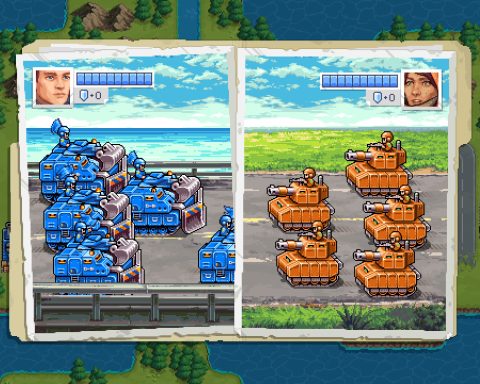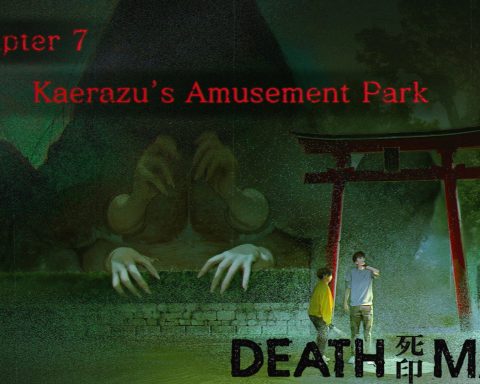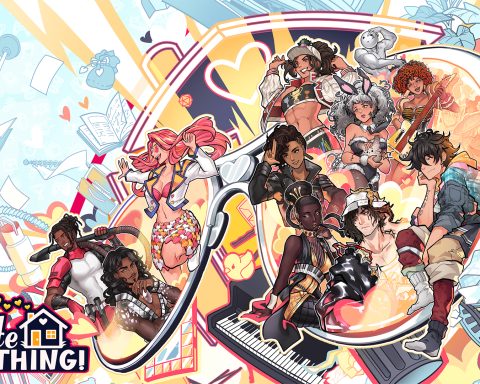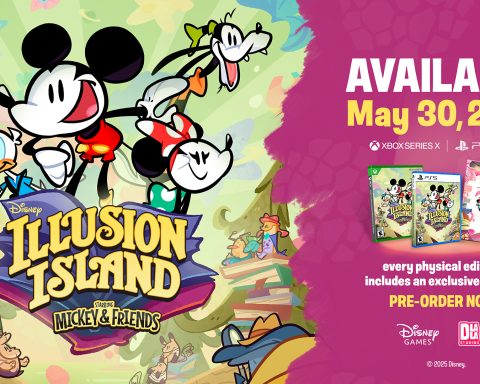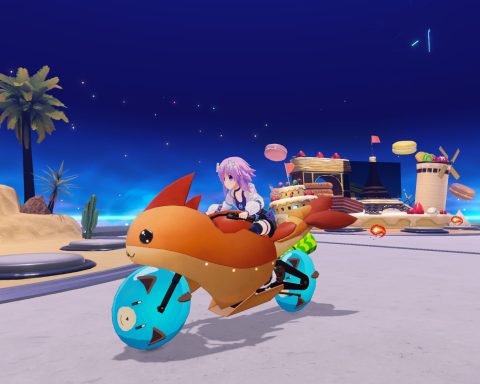 Review by Jedediah H.
Review by Jedediah H.
As a species, we crave human warmth and face-to-face interaction. Be it with a good friend, a romantic partner, or the fire-fighter who’s always clad in sweet aroma (and nothing else), we need some consistency of human contact, whether it’s a sharing of beverages that leads to a playful punch to a friend’s granite-like abdomen, or a personal conversation about mutual night terrors that ends in a double-panic attack.
These sorts of shared, convivial experiences create close bonds that allow us to maintain a sense of happiness, a feeling of self-worth, and a smile that can infect the most cynical and greasiest of naysayers.
But being the busy, constructive people that we are, with our “jobs” and “educations” and “dreams of tailoring the most functional yet chic dragon saddles,” we have less time to actually see our friends and romantic paragons, and so to stay in the loop and avoid mental solitude, we turn to communicative and virtual channels, like text messaging, social media, and video games, in order to build new relationships whilst keeping our current ones from dissipating.
Ar nosurge: Ode to an Unborn Star, with a stunningly complex, funny, and emotive sci-fi narrative that glows with the themes of companionship, communication, and cooperation, understands a thing or two about making and maximizing close bonds, whether said bonds are face-to-face or maintained through versatile channels. With more heart and charisma than any game I’ve jammed my thumbs playing thus far this year, Ar nosurge had me sympathising with my in-game comrades to the point where I felt less like a useful observer and more like a vital participant. In other, manlier words, I actually became a part of its universe.
Alas, roaming this brilliant universe can come with a price, and for some, but definitely not all, fans of JRPGs that price will be the boundless amounts of dialogue and minutiae, and a combat system that, in the first chapter, appears to be a bit too basic and underutilised. It’s possible that some people will give up on this game too early to fully come to appreciate it.
The game’s story can also be profoundly enigmatic when, like me, you’re HALO dropped into its atmosphere having never had the honour of playing its prequel, Ciel nosurge, as well as its sequels in the Ar tonelico series, which together compose the extensive Exapico Universe (as it’s spelled in this game). But thanks to a detailed glossary that highlights key terminology, which exposes the proverbial ten metric tonnes of information and back story, I never felt at a stupefying loss for narrative comprehension, though I’m positive I missed out on plenty of details from the previous game that would’ve increased my enjoyment of the multifaceted world Ar nosurge fosters.
Taking place on a massive deep space colony somewhere presumably on the corpus callosum of the universe, Ar nosurge’s macro narrative is an absorbing construct: 5,000 years ago, the human home world of Ra Ciela was destroyed by solar bombardment (which was caused by a dimensional imbalance that I will restrain myself from spoiling). So with no planet to throw parties on, the human race cruises the universe via space colony, suspended in pessimism, losing hope on one day discovering a hospitable planet to colonise. Even worse, they have antagonistic neighbours on board. A race of fairy-winged humanoids called Sharl inhabit the colony’s upper levels, and their favourite hobby, besides looking adorable and talking adorably, is abducting humans who travel outside of the city walls.
From this premise, the story expands into a multi-thematic grandiosity wherein characters and races whom you assume to be nefarious agents of destruction turn out to be misunderstood victims of circumstance, sometimes acting selfishly and other times acting for the benefit of an entire population. Ar nosurge argues that good and evil is all about perception, relativity, and the intriguing causes for the reasons why characters position themselves on a particular point on the moral spectrum, not about arbitrary, unflinching dichotomies. And so to help you view and understand the world through the multiple lenses of the conflict, the game has you alternating between the consciousness of two stalwart vanguards, Delta and Earthes, who are both tasked with protecting and developing impregnable bonds with their respective Song Magic heroines, Cass and Ion.
Protecting said heroines is a generally fun but mostly easy endeavour (which is why I suggest that you JRPG experts amongst us increase the difficulty to Hard or Veteran right off the bat). Fundamentally turn-based, the combat places you in front of your heroine as to shield her as she builds up burst energy through your attacks, which eventually allows her to execute the almighty Song Magic, a melodic coup de grace that has the potential to prematurely end any encounter. Only your heroine has a life bar, and innumerable waves of enemies are twitching with the chance to slap a portion of it down a few notches. But of course, with you on the offensive, executing precise combos with the face buttons, your foes are almost guaranteed to be perpetually enfeebled.
You see, after a dozen or so battles, you begin to develop a sense of the ebb and flow of attack and defence. Adversaries in each wave are positioned differently on the battlefield, and the ones set to attack following your turn have either a “!” or the term “Skill” above their soon-to-be embarrassed heads. By navigating to and prioritising your bum-rushes on these fools, with a move set that allows you to push enemies back, placing them in a position where you can slash or blast multiple combatants at once, you build up a meter under their health bars that when full breaks their attacks. And if you can break every enemy that has an attack designator, you earn an extra turn, allowing you to continually pummel the opposition mercilessly, which hastens the process of accumulating the Burst points necessary to administer a deadly dose of Song Magic.
While it can lack challenge and could use more techniques to fill out the move set, battling is a frenetic and enjoyable system that’s gradually improved by Friend Skills, cinematic, hand drawn special moves that can be used once per battle, and enemies with barriers and the ability to counter attack (which is actually pretty freakin’ annoying, because they come out of nowhere with zero warning or explanation).
The biggest issue with the combat for some will be its undemanding nature, but for most, I fear it will be the fact that there isn’t enough of it. As I mentioned earlier, Ar nosurge is an experience about developing bonds, and this is done primarily through communication. Unlike other JRPGs where you grind for luscious experience points for encounter after encounter until you’re starving or feral, here it can be said that you essentially grind through interactive text, or the visual novel aspect of the narrative, to gain the items necessary to truly enhance your couples’ skills. Nurturing bonds through communication is the prominent, poignant theme; it’s the groundwork for every major game-play component. It’s what the universe is built upon. And, if you appreciate nuanced character development, it is Ar nosurge’s greatest strength.
Whether it is Item Synthesis, which is pretty self-explanatory, Genometrics, the system that allows the male hero to enter a female characters’ subconscious in order to interact with their personified worries, for the purpose of achieving and improving Song Magic as well as obtaining Genometrica Crystals that strengthen the couples’ attributes, or Purification, a system that encourages chit chat and allows you to equip said Genometrica Crystals, these three systems each contain copious amounts of crucial dialogue. Ranging from fun but trivial discussions, through to deeper insight into the characters’ personalities and motivations, these interactions, combined with the story, inspire a jackass grin as you’re drawn into the deepest layers of the gaming world, offering the illusion of intense player agency, despite the linear storyline, as it relates to the consequences brought on by the actions of key characters.
One blessing that can’t be overlooked is the music. It’s as though the composers gained effervescent propulsion and journeyed beyond the known galaxy to obtain a language of melodies and vocal accompaniments heretofore only rehearsed by the stars. It’s so good, I’d figuratively leap crotch-first into a black-hole if it meant owning a physical copy. And this should come as no surprise considering the director’s own background is in the music side of production.
Although the deluge of dialogue may turn even the most ardent of JRPG fans off, Ar nosurge is an emotive title that we’re fortunate to even have the option of purchasing in the West. On the surface, when looking solely at its visual presentation, it may seem like any other JRPG currently and due to be available for the beloved PS3. However, and this isn’t to mock or underplay the excellence of other JRPGs that deserve attention, beneath the beautiful yet misleading façade is a unique, singular sci-fi narrative. By enforcing a system of communication and bond development amongst its characters, Ar nosurge: Ode to an Unborn Star achieves what great novels and only the most lovingly crafted virtual experiences can: it offers the opportunity to not only interact with the characters but to, possibly, form memorable relationships with them as well.
– Jedediah H.
News Editor
I create the smoothest bonds at: jedh@digitallydownloaded.net
I play the smoothest games at: twitch.tv/the_major1219






